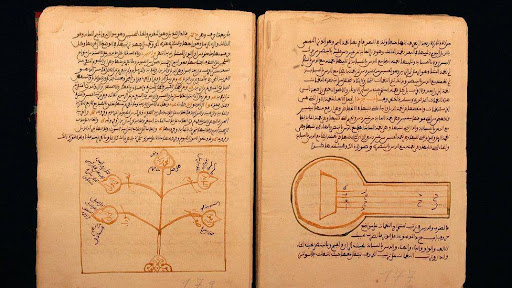Manuscripts combining forming a visual gallery that represents Mali’s cultural history are launched that feature Timbuktu’s tens of thousands of ancient manuscripts. These manuscripts are said to be smuggled from Timbuktu to a safe location after the Islamist militant group gained control over northern Mali city in the year 2012.
The manuscripts contain African knowledge of centuries and scholarship that ranges from topics from maths to the astrological charts, giving insights into how the continent observed its environment and the richness of its heritage. They also resonate with the long legacy of Africa in the form of written and academic knowledge and excellence. The historic collection, also known as Mali Magic, captures the Mali culture beyond simply manuscripts but features the pictures of Dogon ethnic group dance, showcases art in its purest African form, including the award-winning Abdoulaye Konaté. The manuscripts also image the builders plastering displaying them painting the Great Mosque of Djenné, which is a UNESCO world heritage site and stands at a distance of about 500km south of Timbuktu.
These ancient documents as displayed in the manuscripts were originally written in the medieval Arabic language, however, they were translated to modern Arabic, English, Spanish and French only to make them accessible to a wider audience. Moreover, the manuscripts also obtained a digital copy which is considered vital to reap the fruits of the labour after so long of its smuggling to safety.
It is believed that Timbuktu remained a cultural hub of the African continent, including the Islamic centre of learning. According to UNESCO, the city’s mosques had a very important role to play in the spread of Islam religion across West Africa in the 15th and 16th centuries.
Since its resort to safety, the traditional leaders, digital archaeologists and historians of Mali have been working hard every single day to ensure that the priceless and ancient manuscripts that date back to the 11th century and contain Mali’s rich cultural heritage, are preserved with much safety by digitising them. This project presents the people of the country to learn from those who were their predecessors.
From the manuscripts, over 40,000 pages will be available online, that cover topics from music to biology. The preservation of the manuscripts is considered a victory, considering how the Islamist militant groups set fire on the Timbuktu libraries and destroyed priceless manuscripts.




